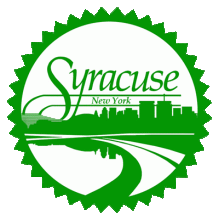Syracuse NY Seeks Proposals for Municipal Broadband Network
Harnessing its American Rescue Plan funds, the city of Syracuse is seeking a partner to launch a pilot project as a precursor to creating a citywide municipal broadband network and to support the city’s broader digital inclusion efforts.
In his 2022 State of the City address, Syracuse Mayor Ben Walsh laid out the vision, recognizing that now is a time of opportunity.
"At no time in the past half century have conditions aligned so favorably for the City of Syracuse," Walsh said. "Population is growing. Graduation rates are rising. Private investment and job creation are again on the upswing. Our city fund balance has grown. The American Rescue Plan provides an unprecedented injection of federal aid — $123 million – to address challenges created and made worse by the pandemic. The Bipartisan Infrastructure Framework will pour tens of millions into the infrastructure challenges that always seemed just out of reach – roads, water, and broadband."
Syracuse wants to seize the opportunity by investing in both improved telecommunication infrastructure and digital literacy programs.
It has led the mayor’s office to issue a Request-for-Proposals (RFP) for the design, implementation and maintenance of a municipal network that would target households in Syracuse not currently served by the city’s incumbent providers (AT&T, Spectrum, and T-Mobile Home Internet).
The deadline for submitting proposals is 2:30 pm ET October 11.
Seeking Open Ended Innovative Proposals
Similar to a recent request for proposals from Onondaga County (where Syracuse is the county seat), the city is seeking open-ended and innovative proposals. City officials have adopted a technology neutral approach and are not specifically asking for proposals to build a fiber network as most new municipal broadband proposals involve. Still, the city does have some parameters in mind.



